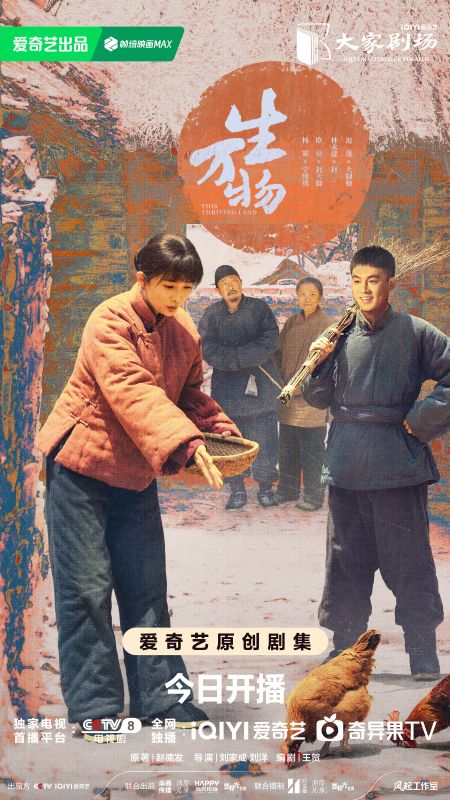
Review: This Thriving Land (2025) 生万物
Summary: On her wedding day, Ning Xiu Xiu (ft Yang Mi 杨幂) is abducted by bandits and held for ransom. Her father, a parsimonious and odious local landowner, Ning Xue Xiang (ft Ni Da Hong 倪大红) refuses to pay the ransom. Instead, he makes an unspoken deal with Mrs. Fei (ft Qin Hai Lu 秦海璐) to move forward with the marriage. Upon hearing of Ning Xiu Xiu’s abduction, local farm boy Feng Da Jiao (ft Ou Hao 欧豪) makes a daring rescue in the middle of the night. The next morning, Ning Xiu Xiu returns to her local village, only to find that her world has turned upside down. Disappointed in her father, she makes one crucial decision that changes her life forever.
Platform: CCTV 8, iQiYi
Episodes: 36
Airing Date: August 13, 2025
Initial Rating (after 23 episodes) 7.8/10: Superbly acted and evocative of 1920s rural Shandong, the drama begins with promise but falters as its increasingly unflattering portrayal of peasants muddies the story’s intent. Yang Mi has improved compared to her recent output but is roundly overshadowed by the more seasoned actors and actresses around her.
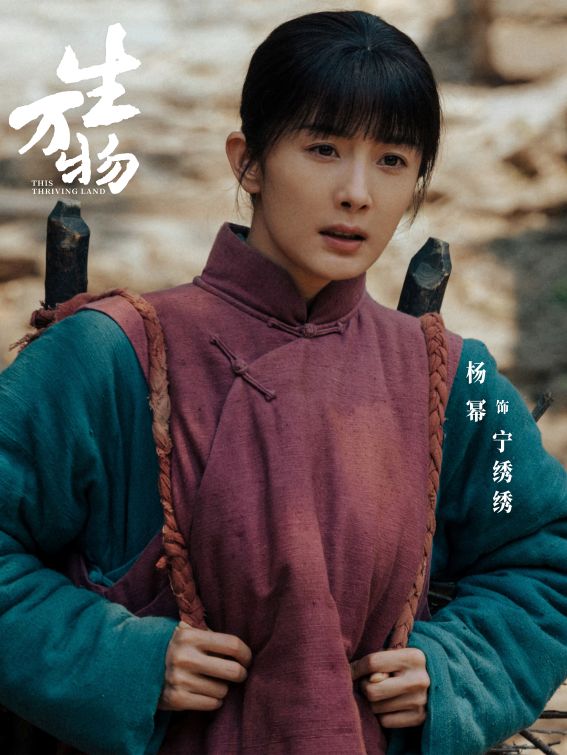
Ning Xiu Xiu 宁秀秀 Yang Mi 杨幂
Eldest daughter of the Ning family and betrothed to Fei Wen Dian
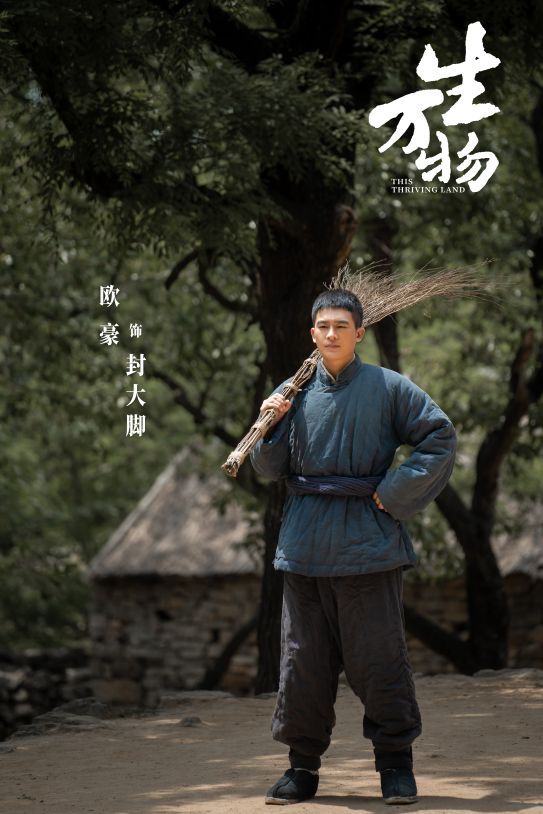
Feng Da Jiao 封大脚 Ou Hao 欧豪
Local farm boy with a kind heart and crush on Ning Xiu Xiu
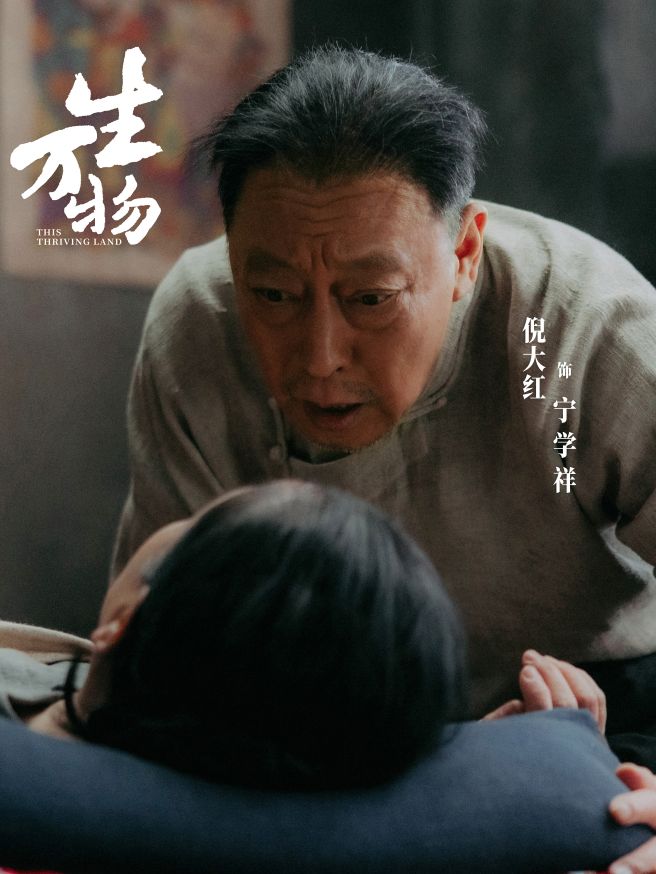
Ning Xue Xiang 宁学祥 Ni Da Hong 倪大红
Miserly landlord who owns 700 acres of land
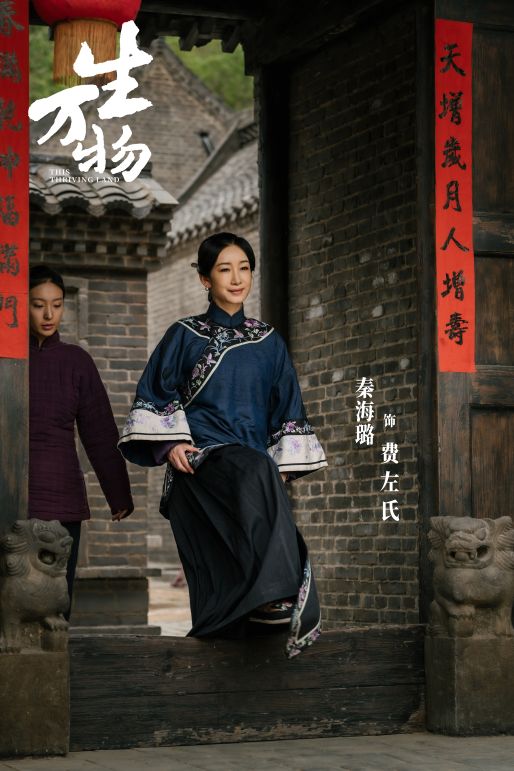
Mrs. Fei 费左氏 Qin Hai Lu 秦海璐
Widow of the Fei family who now runs the Fei family's land
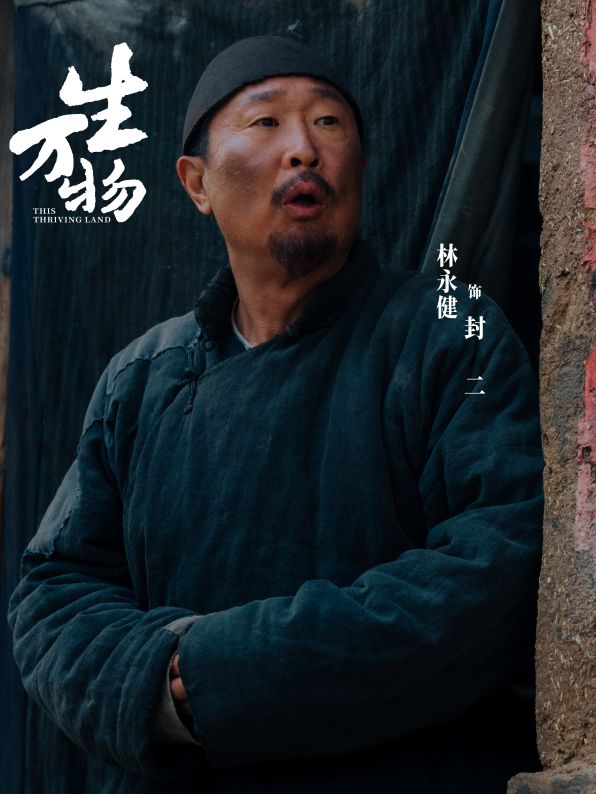
Feng Er 封二 Lin Yong Jian 林永健
Poor landowner who's life ambition is to acquire more land
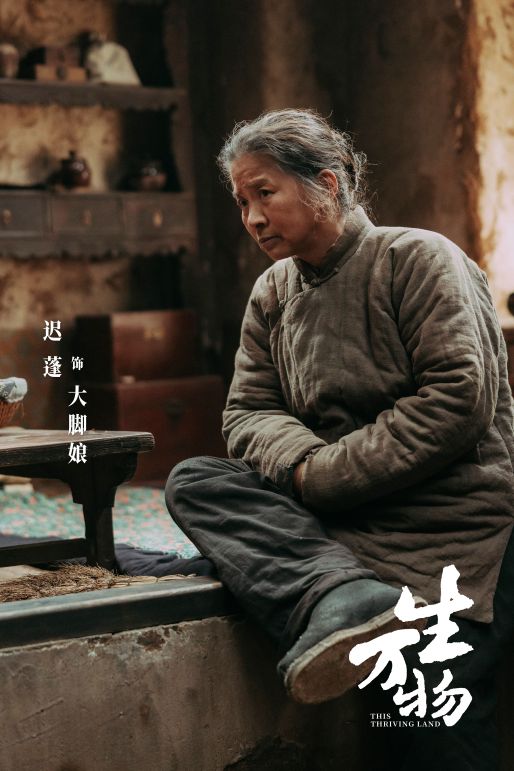
Da Jiao Niang 大脚娘 Chi Peng 迟蓬
Gentle and tenacious mother of Feng Da Jiao
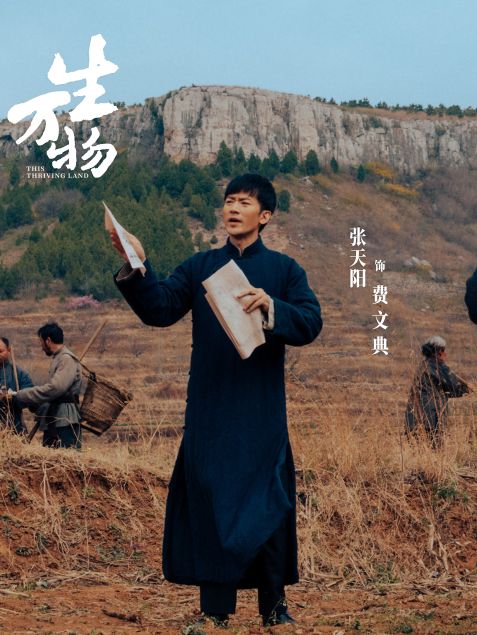
Fei Wen Dian 费文典 Zhang Tian Yang 张天阳
Sole heir to the Fei family and betrothed to Ning Xiu Xiu
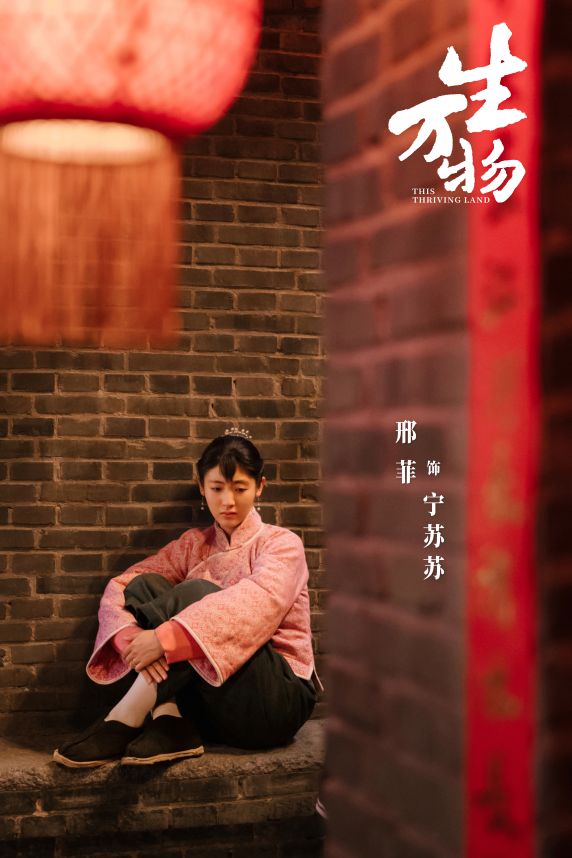
Ning Su Su 宁苏苏 Xing Fei 邢菲
Younger sister to Ning Xiu Xiu who wants the best for her family
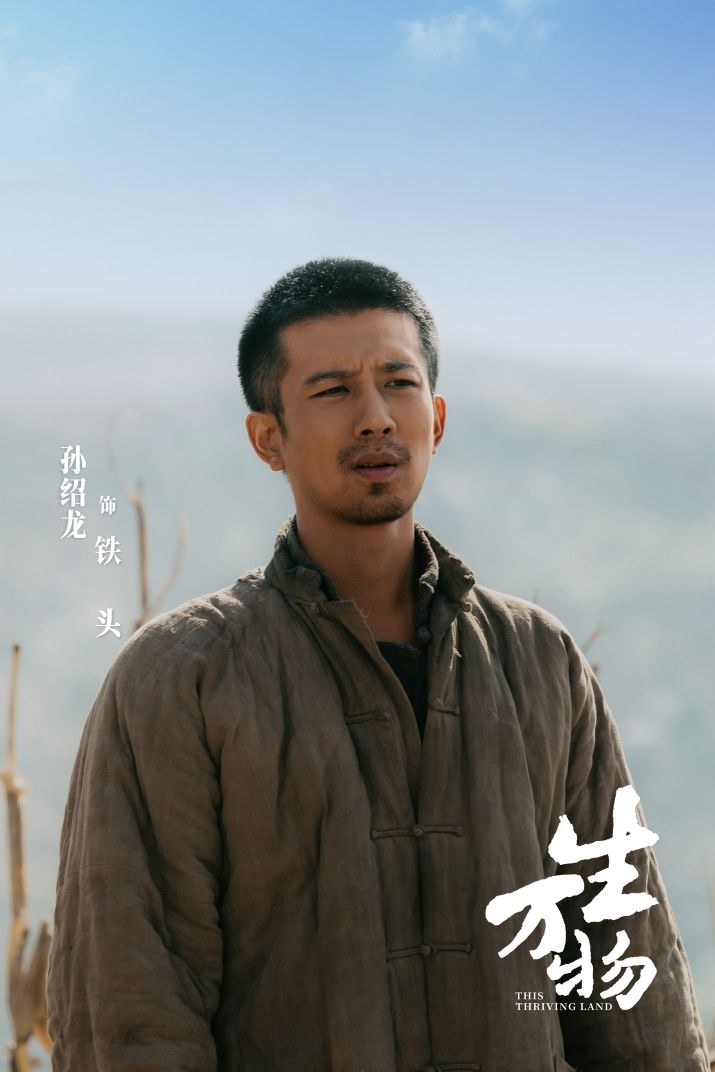
Tie Tou 铁头 Sun Shao Long 孙绍龙
Poor farm boy who rents land from the Fei family
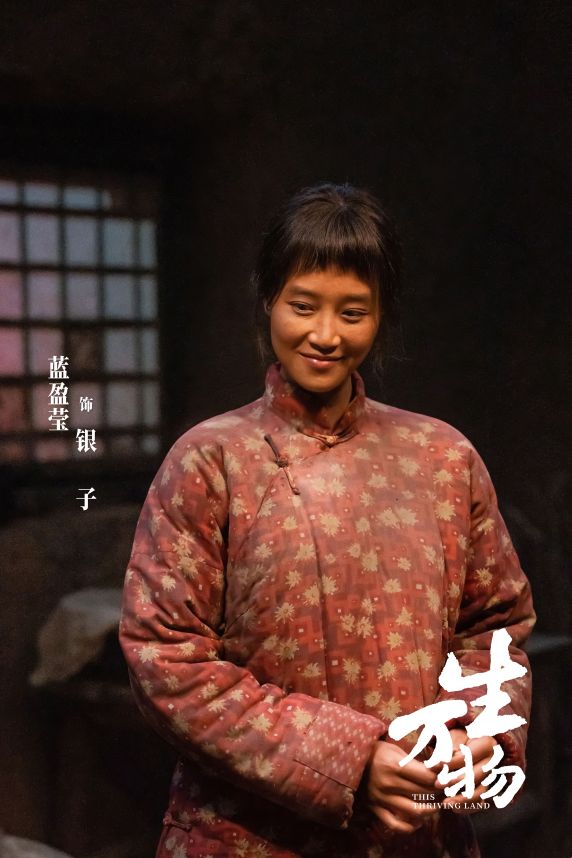
Ying Zi 银子 Lan Ying Ying 蓝盈莹
Poor farm girl who must find a way to support her family
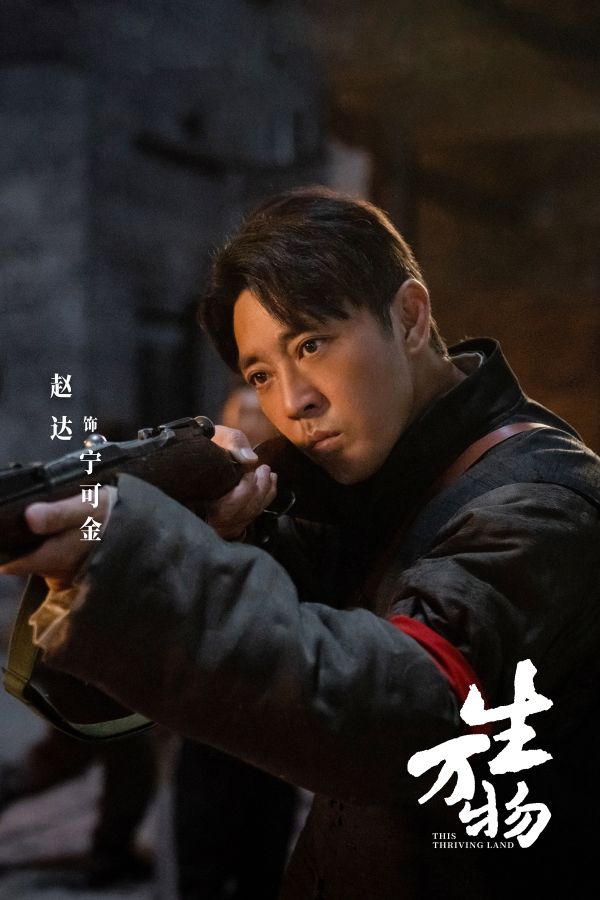
Ning Ke Jin 宁可金 Zhao Da 赵达
Sole heir to the Ning family and leader of a local militia
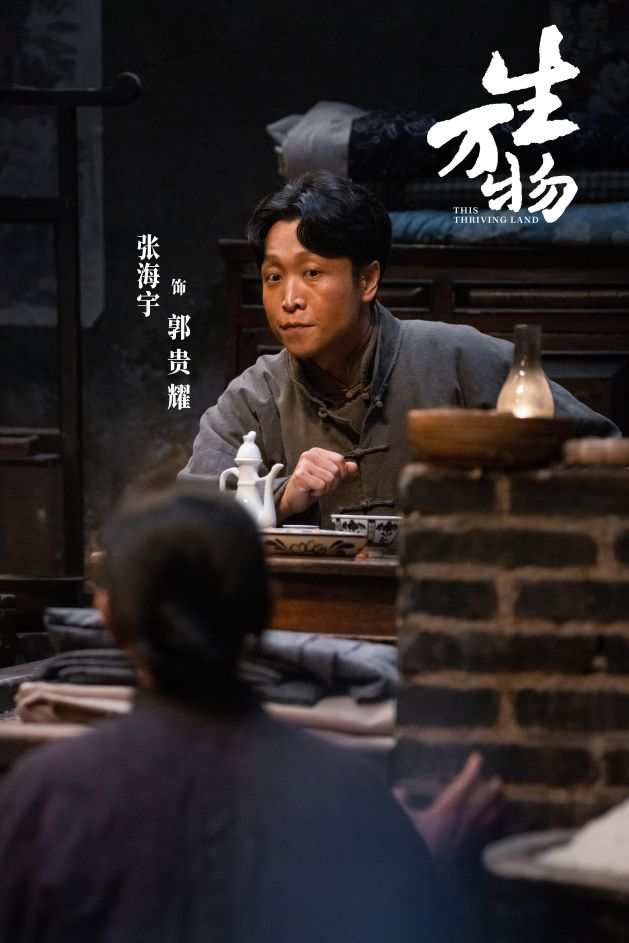
Guo Gui Yao 郭贵耀 Zhang Hai Ning 张海宇
Wandering peddler of goods who tells tales about his travels
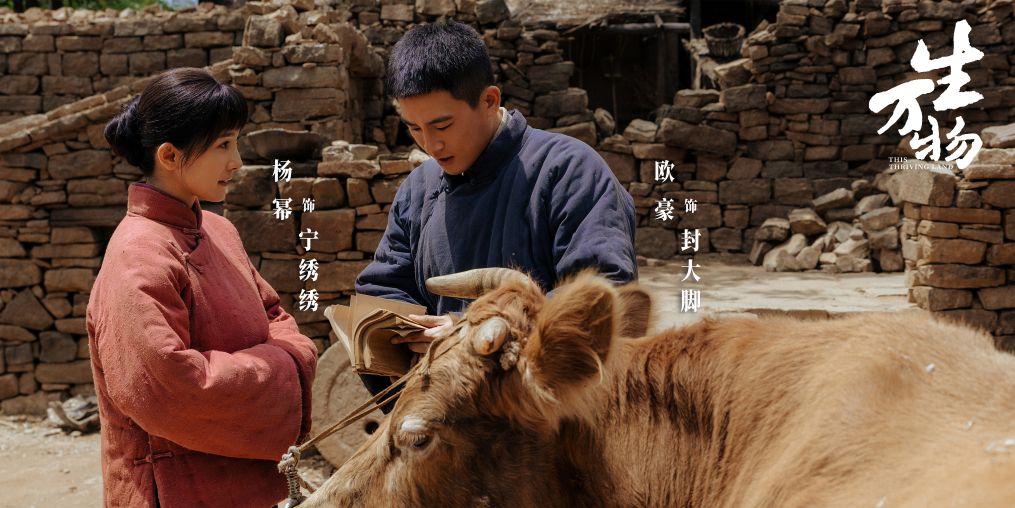
Initial Thoughts
Set in 1926, just over a decade after the fall of the Qing Dynasty, this drama takes place during a time of turmoil, upheaval, and uncertainty with warlords vying for power, the Kuomintang striving for unification, and the Communist Party quietly on the rise. Against this turbulent backdrop lies the microcosm of Tian Niu Village, where a few wealthy landowners hoard hundreds of acres while peasants toil as renters and the poorest cling to just a few mu (acres) of land.
The show wastes no time in laying bare the oppressive and suffocating culture of feudal society, particularly its treatment of women. Ning Xiu Xiu’s fate is sealed when she is abducted on her wedding day. In the eyes of her community, a single night in captivity renders her “impure” and unworthy, a disgrace to both her family and herself. This culture is engrained in everyone, be it the men, women, landowners, and peasants. It is under these conditions that Ning Xiu Xiu must pave a path forward in life. My main takeaway was, China desperately needed change. The old traditions stifled any kind of progress.
The first ten episodes are riveting, with strong character introductions and layered portrayals of how different people adapt or fail to adapt to the times. But as the story progresses, my frustrations mounted. Once again, the narrative gives the spotlight to men over women. Peasants are often painted as lazy, ungrateful, or unreasonable. At times, I found myself uncomfortably sympathizing with certain landowners more than the villagers.
After a string of lackluster projects in 2024, Yang Mi makes a strong return with this 1920s rural epic. Though she receives top billing as Ning Xiu Xiu, it’s the ensemble around her that gives the series its real weight. Adapted from the 1990s novel 缱绻与决绝 (Lingering Attachment and Resoluteness), the drama has sanitized much of the original material to be palatable to modern audiences. This drama has become the juggernaut of the summer, with ratings on CCTV-8 regularly breaking 3% and even peaking at 4%. This drama broke the 10,000 mark on iQiYi and has topped every viewership chart, easily beating the other period romance and fantasy romance dramas airing at the same time.
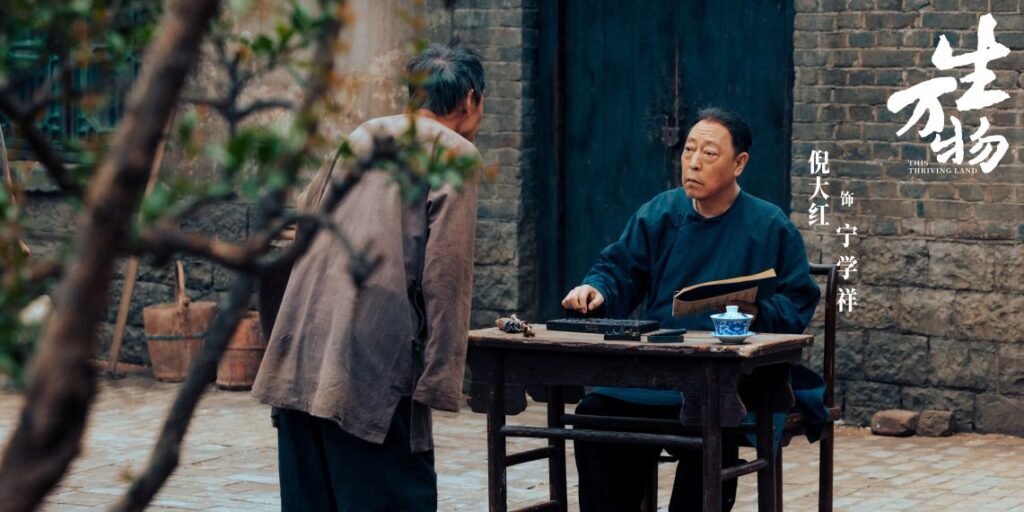
What I Liked
- Superb acting from most of the main cast:This drama stands out for its superb acting, particularly from veterans like Ni Da Hong, Lin Yong Jian, Qin Hai Lu, and Chi Peng. Playing the parents and family elders, they fully embody their roles, shedding all traces of glamour and even adding unique quirks in speech or movement that make their characters feel lived-in. Lin Yong Jian and Chi Peng, often caked in dirt and grime, are especially convincing. It’s a delight to watch these performances, even when some of the characters themselves are loathsome. The rest of the cast also delivers solid work, though some of the characters are less compelling.
- Depiction of the suffocating and repressive traditions: The series does not hold back in its portrayal of suffocating Chinese feudal traditions. Set in Shandong Province, home of Confucius and deeply rooted in traditional culture (still is), the drama lays bare how these customs both bound and destroyed lives. Mrs. Fei exemplifies this paradox. She’s an intelligent and commanding woman who respected as a benevolent landowner that rules with an iron grip. Yet she is so shackled by family and cultural norms that she enforces them with ruthless conviction, sacrificing others in the name of tradition. She is both victim and perpetrator, and the drama captures that tension without flinching. Unfortunately, all of the characters, even the victims, are powerless against these misfortunes because well, that was how it was.
- Individuals are a product of their environment: What’s refreshing is how organically the characters’ choices reflect their environment and upbringing. Ning Yong Xiang, detestable as he may be, treasures land above all else because it has been passed down for generations. Feng Er, with only 18 acres, schemes endlessly for more, convinced that land is the only path to wealth. Feng Da Jiao turns down the chance to move to town out of love for his family and land, while the educated Ning Xiu Xiu recognizes it as a rare opportunity and pushes for new ways to cultivate productivity. Their decisions may be frustrating, but they feel authentic, products of who they are and where they come from.
- Authentic portrayals: China in the 1920s was poor. It was dirt poor. Yes there are plenty of dramas that showcase the wealth and glamor of the major cities of Shanghai and Nanjing but the vast majority of Chinese lived in abject poverty. Peasants scrape by without meat, while landowners live in relative luxury. If you visit some of the more rural areas of China today, the villages aren’t much better than what is depicted in the drama. This authenticity is part of why dramas like this resonate so strongly with the broader viewer. This drama at least attempted to reflect the difficulties of life
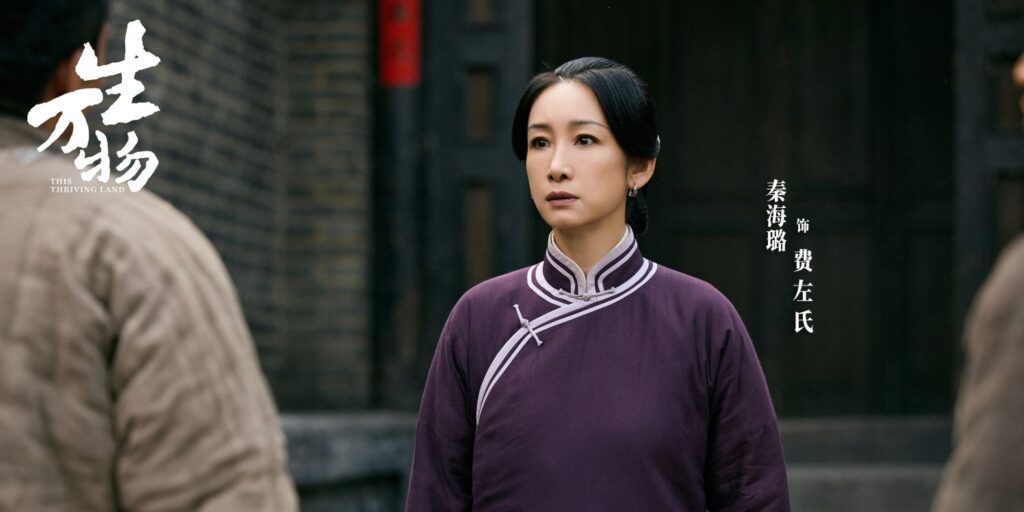
What's Didn't Work
- Unsavory depictions of peasants: While I understand the drama’s attempt to present nuanced and morally gray characters, the depiction of the peasants becomes increasingly unflattering. At first, their hardships invite sympathy, but as the story progresses, their ungratefulness and laziness make them hard to root for. Tie Tou’s family, for example, had long failed to pay rent or taxes due to his poor farming skills. When Mrs. Fei, well within her rights, reassigns the land, Tie Tou and his mother erupt in anger, hurling insults, making threats, and nearly attacking her. They are furious that Mrs. Fei deigned to rescind the rights to “their” land. The Feng family tries to help them and Tei Tou blindly attacks them too. Instead of offering commentary on class struggle, these scenes left me siding with the landowners, which made the drama’s message feel muddled. Was it really suggesting that whoever causes the loudest disruption deserves land, regardless of merit? It was really tough to side with these peasants because at the end of the day, they weren’t even great farmers.
- Yang Mi as Ning Xiu Xiu: As the lead of the drama, Yang Mi should be the focal point of the drama but she is oddly muted compared to the characters around her. She is adequate as Ning Xiu Xiu but is greatly overshadowed by everyone in the main cast around her including the actress for her younger sister Xing Fei as Ning Su Su. I’m glad Yang Mi improved her acting and the performance of the drama certainly will be big boost for her popularity but future awards prospects. Unfortunately she still has a ways to go before she is able to keep up with the other veterans in this drama.
- Suppression of Agency from Women: Despite my praise that the drama shows the unrelenting oppression of women in the name of tradition, one of the most frustrating aspects is how little freedom women are given to make their own choices. Mrs. Fei is bound by tradition, Ning Xiu Xiu’s entrepreneurial ideas are stifled by her father-in-law, and Ning Su Su is trapped in a marriage she cannot escape. Time and again, women are forced to submit to male authority, their choices dismissed or punished. While perhaps true to the era, it becomes disheartening to watch. I hope this changes as the drama progresses but it was extremely frustrating to see so many decisions made by the men in the drama and the women just have to accept it.
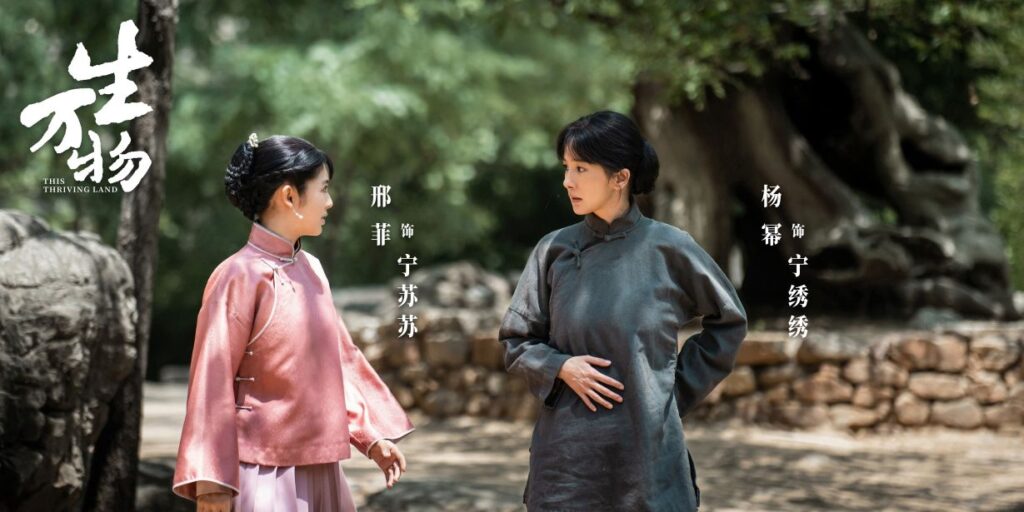
For Discussion at the end of the drama
- The Importance of Virginity: I’ll discuss this once I finish watching the drama.

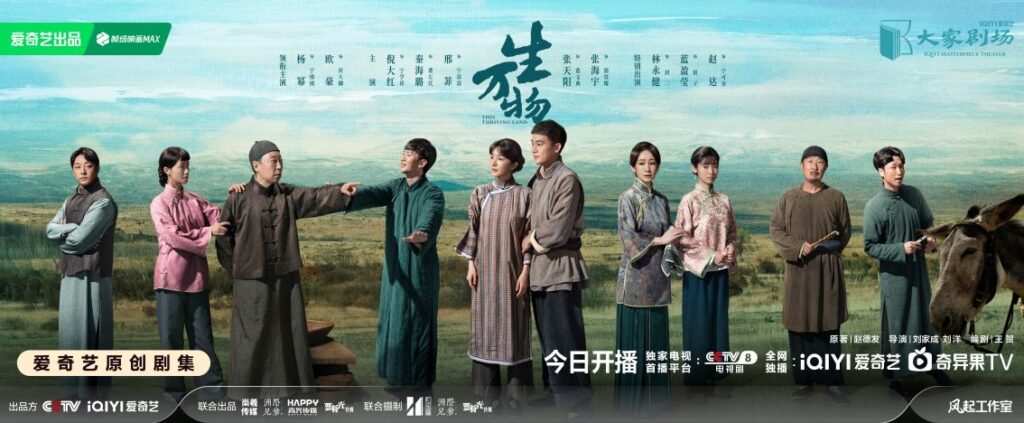
Thank you for reviewing this drama. I finished watching it and while I did enjoy the beginning, the latter episodes made me rather frustrated. I also felt that the drama had unnecessary deaths (Susu and Guo Gui Yao) which could have been avoided. While I am happy that Yang Mi has a hit on her hands, I do agree that the biggest draw of this drama is superb supporting cast. They really do draw you into the story. I also have some minor nit picks in terms of styling for the latter half but overall I really did enjoy watching this drama. Looking forward to the rest of the review.
I have not completed much cdramas this year and reading your reviews has been really informative. I decided to pick up Sowrd and Rose even though it is not a genre I usually like after reading your review.
I totally enjoyed the initial 20 or so episodes. The story was harsh, but the actors were very believable. Epic. My favorite scene is when XiuXiu was telling Lulu about her relationship with her husband, Da Jiao. Very heartfelt. However, during the last 1/3 of the drama, it abruptly became a hagiography to the CCP making me feel I was manipulated into watching a propaganda piece (which conveniently left out “The Great Leap Forward” and the “Cultural Revolution”).
I thoroughly enjoyed this drama.I felt the supporting cast were absolutely brilliant in their roles espically Xiuxiu’s mother in law.He subtle way with words hit the spot for me.I highly recommend this drama.